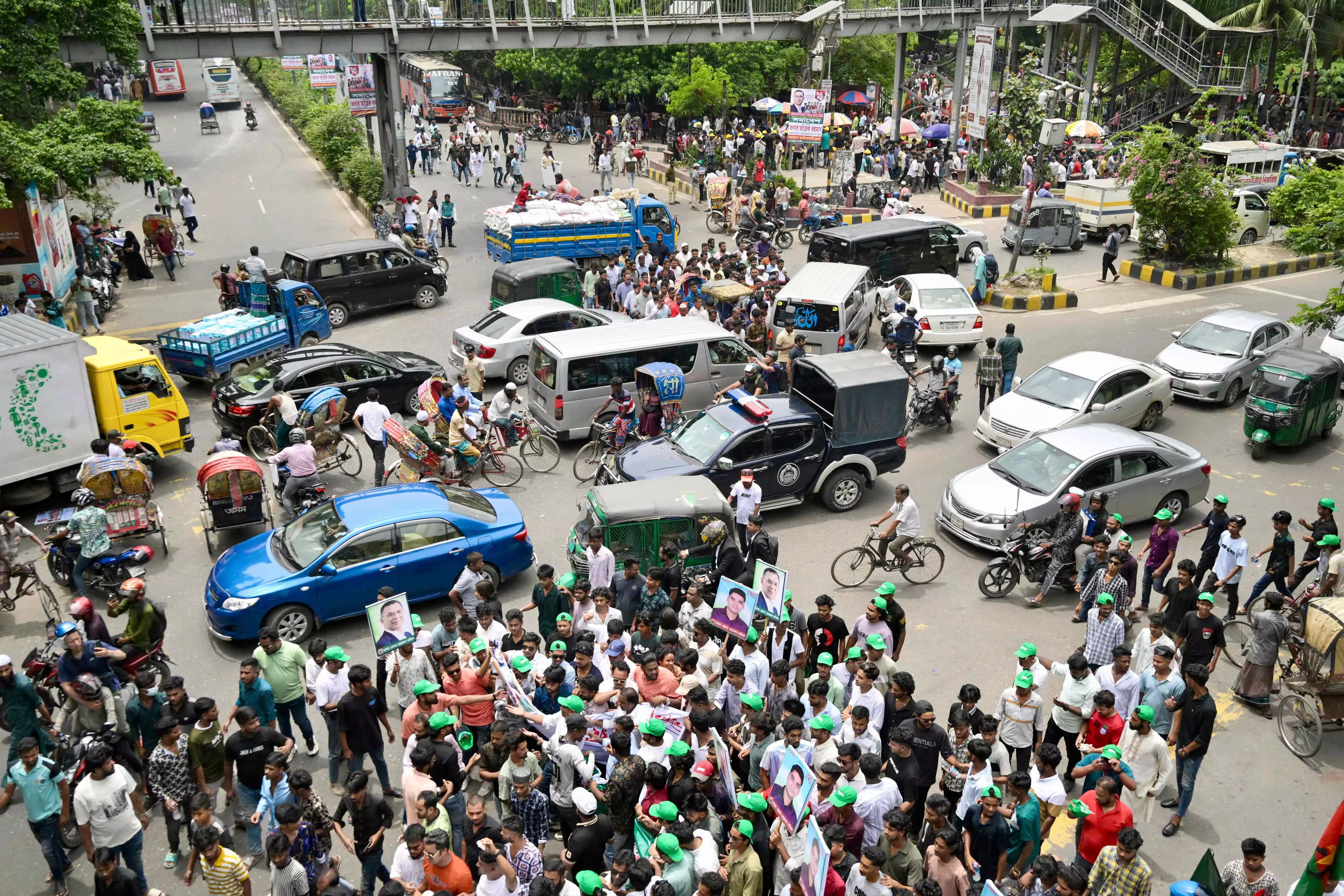Farrukh Dhondy | Of ‘Paki-bashing’ in UK and the 2024 ‘Uprising’ which Swept Bangladesh
Bangladesh’s popular movement is, in our times, unique for demonstrating that a people’s uprising is perhaps the greater balancing democratic force and one that can win a decisive victory

“Yes, the king of the road
Drives down the middle
Does he have a licence?
That remains a riddle
His beti is in an English medium
School in a town called Puri
She told him the highway he rides
Was made by Sher Shah Suri
Such is our generation gap…
I’ve told her she can have what’s mine
She says she doesn’t want a truck --
Never cast pearls before swine?”
From The Ballad of Rosemary Marlowe, by Bachchoo
Two Bangladeshi memorial occasions last week to which I was invited as a platform panellist... Gentle reader, you may well ask, if you speak French -- “pour the hell quoi?” Or “what the f--aintest have you got to do with Bangladesh?”
Let me count the ways. In the last few decades, the Dacca Litt Society has invited me on several occasions to speak -- and then on three occasions for a few weeks at a time, I have conducted screenplay writing workshops for the Dacca Film Society.
I must have made some impression on these sojourns and because one of the London occasions, hosted by British MP Apsana Begum, was showing a documentary about the 2024 uprising in Bangladesh and clips from another film about the subject, I was considered appropriate for the Q and A which followed.
The other reason for the invite to the other Bangladesh themed occasion was that in the late 1970s-early 1980s, I aligned myself with communal political agitators in the East End of London amongst the Bangladeshi community -- central to the area. I went there as a writer and activist for a multiracial political platform called Race Today.
That was in response to a plea from twelve Bangladeshi clothing-sweatshop workers who had been cheated into believing that they had “bought” a house which actually belonged to the Greater London Council (GLC).
They lived, four in a room, in this house. They called Race Today for advice and assistance when the GLC threatened to evict them. When the eviction day arrived, we turned up to confront the GLC’s squad of evictors and lawyers to whom we pointed out that the occupants, having been defrauded, still lived in the house and were, in British lingo, legitimate “squatters”. The GLC squad was compelled to acknowledge that and turned away.
That began our movement called the Bengali Housing Action Group (BHAG), which, with the assistance of several young Bangladeshi youths, squatted at the empty properties which the local Tower Hamlets Council and the GLC had left empty to demolish and rebuild for profit.
BHAG, over the following months, squatted six hundred families all over London’s East End.
A consequence of our mustering this direct action was the formation of young Bangladeshis forming an army of vigilante groups to stop “Paki-bashing”, the random assaults on Bengali individuals and on families on housing estates by organised right-wing gangs of white youths. It worked! Paki-bashing was militantly confronted and chased off the streets.
I used my experiences in the Bengali struggle to write several published fictions and a TV drama series for the BBC called King of The Ghetto. The books and the film were commented on by the gracious Bangladeshi-origin MP, Rupa Haq, after the session when we gathered to gossip.
A young filmmaker called Finn Blyth interviewed the participants of BHAG and the vigilante movement and then screened the film to a packed audience and invited me to the panel discussion that followed.
The other more establishment event was dedicated to celebrating the 2024 “revolution” in Bangladesh that led to the ouster of Sheikh Hasina’s repressive government. The screening and discussion were held in one of the British Parliament’s public rooms. On the panel with me were Shahidul Alam, the distinguished photographer and political activist, Nowshin Noor, a leading participant and spokesperson for the demonstrations that brought down the Hasina government, and Nayanika Mookerjee, a professor and historical chronicler.
The session began with a film by Bangladeshi Hindu filmmaker Deepak Kumar Goswami. His film featured, in the main, the treatment of Hindus as a minority in Bangladesh, even though I was expecting it to chronicle, through personal testimony, the oppression of the overthrown government and the growth and principles of the movement against it. There wasn’t much of that. Instead, Goswami’s documentary principally attacked the “Indian media” for propaganda and “lies” against Bangladesh. I follow the Indian media but was unaware that this was a principal trend.
There followed clips from July Women, a documentary film featuring the women activists of the 2024 revolt. I would have personally preferred to watch and comment on the full documentary.
The commentary, after the showing from Shahidul and Nayanika, was instructive, telling us about the worker and female participation in the uprising. The testimony of Ms Noor, whose brother and associates were injured as they were attacked by Sheikh Hasina’s police, was very moving.
For my part, I was asked about, or at least felt obliged to tell the audience why I was there, and then, being cued into analysis of the occasion, I spoke about the fact that in a world in which “democracies” are electing right-wing and populist governments, Bangladesh’s popular movement is, in our times, unique for demonstrating that a people’s uprising is perhaps the greater balancing democratic force and one that can win a decisive victory.
So, wake up America! It can be done!
